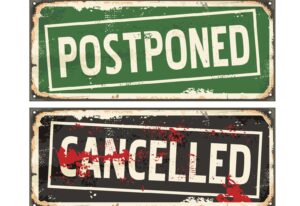
The marijuana industry is finally beginning to experience meaningful movement on the national level, slowly chipping away at federal prohibition. With the most recent Cole Memo, FinCEN guidelines, legalization in two additional states and D.C., improving Veteran access to cannabis for medical use, and a tiny take-down of at least one significant federal barrier to marijuana research, one would be justified in believing that Federal agencies are ever so slowly caving to state-by-state legalization and view full-scale reform of federal marijuana laws as inevitable.
But none of this is true of the IRS, which isn’t buying into marijuana at all. In its continuing blow to the state-legal cannabis industry, the IRS again flexed its muscles over 280e, this time in the Ninth Circuit Court of Appeals in the case of Olive v. Commissioner, which held that cannabis businesses cannot deduct the same expenses as other businesses:
The [Court of Appeals] affirmed the Tax Court’s conclusion that 26 U.S.C. § 280E precluded taxpayer from deducting any amount of ordinary or necessary business expenses associated with operation of the Vapor Room dispensary because it is a “trade or business . . . consist[ing] of trafficking in controlled substances . . . prohibited by Federal law.”
Olive is a notable case, not because of its entirely predictable outcome, but because of the arguments Olive tried to make to escape 280e and because it tells us what to expect from the IRS (and federal courts) going forward. Most importantly, it reaffirms that most tax cases, including 280e cases, tend to be fact specific.
The relevant facts in the Olive case are as follows. Martin Olive manages the Vapor Room Herbal Center, a medical marijuana dispensary in San Francisco. The Vapor Room is set up like “a community center,” with an alleged variety of activities offered to patrons, like yoga, free of charge. The Vapor Room also sells cannabis for medical use to qualifying patients.
Olive sought to take ordinary and necessary business expense deductions associated with the operation of the Vapor Room and this landed him in front of the Tax Court. The Tax Court ruled that because Olive traffics in a federally controlled substance (marijuana) the Vapor Room could not claim any ordinary and necessary business deductions pursuant to IRC 280e. Olive then appealed that decision to the Ninth Circuit Court of Appeals.
First, Olive tried to argue that 280e should not apply to the Vapor Room at all because the Vapor Room’s sole “business or trade” was not just the sale of cannabis. He argued that it was the sale of cannabis along with various “caregiving services.” Olive argued that these different lines of business put the Vapor Room beyond 280e, similar to the business in the 2007 CHAMP case. The Court disagreed with Olive based strictly on the facts, noting that Olive’s primary business was indeed the sale of cannabis, not the other caregiving services which in the Court’s opinion were akin to “complimentary amenities,” rather than distinct lines of separate businesses that would otherwise warrant regular business deductions.
Second, Olive pursued arguments around “congressional intent and public policy,” which the Court found “similarly unavailing.” Specifically, Olive argued that § 280E “should not be construed to apply to medical marijuana dispensaries because those dispensaries did not exist when Congress enacted § 280E,” and that “Congress could not have intended for medical marijuana dispensaries (now legal in many states) to fall within the ambit of “items not deductible” under the Internal Revenue Code.” The Court concluded that this line of argument was irrelevant, that “[a]pplication of [280e] does not depend on the illegality of marijuana sales under state law; the only question Congress allows us [a federal court tasked with enforcing federal law] to ask is whether marijuana is a controlled substance ‘prohibited by Federal law.'” The Court concluded that Congress is free to change 280e if it thinks that law to be “unwise” and left it at that.
Lastly, Olive asserted that the 2014 Cromnibus should prevent the IRS from spending any government dollars to prosecute its case against the Vapor Room. The Court ruled that section 538 of the Cromnibus did not apply to Olive’s case:
The government is enforcing only a tax, which does not prevent people from using, distributing, possessing, or cultivating marijuana in California. Enforcing these laws might make it more costly to run a dispensary, but it does not change whether these activities are authorized in the state.
What comes from Olive, loud and clear, is that we should not expect the courts to give the marijuana industry any tax relief: that is going to have to come from Congress. With Congress not expected to do anything much on marijuana until 2016 it seems the marijuana industry will need to put up with the IRS and its antiquated and unfair marijuana taxation regime for at least a while longer. Sorry.























